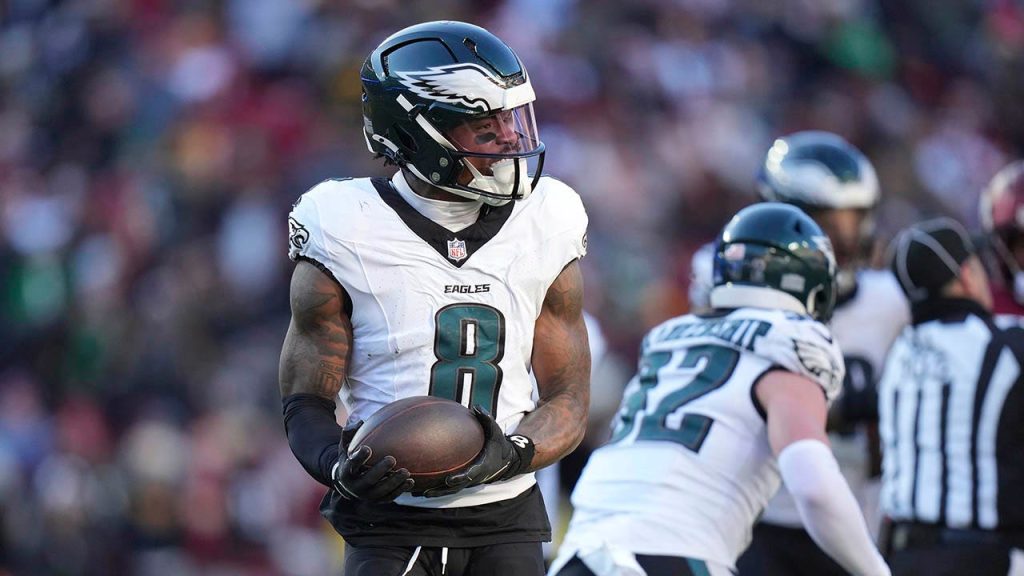The Philadelphia Eagles suffered a shocking 36-33 loss to the Washington Commanders at FedEx Field, a defeat punctuated by the ejection of star defensive back C.J. Gardner-Johnson and a stunning fourth-quarter comeback by the Commanders. Gardner-Johnson, a key figure in the Eagles’ formidable defense, was flagged for two unsportsmanlike conduct penalties in the second half, the second of which resulted in his expulsion from the game. The ejection stemmed from an altercation with Commanders wide receiver Dyami Brown, during which Gardner-Johnson was reportedly pushed in the helmet. Despite appearing to be the recipient of the physical contact, Gardner-Johnson was deemed the instigator and penalized, triggering his removal from the contest.
Gardner-Johnson, known for his passionate and fiery playing style, took to social media platform X (formerly Twitter) to express his frustration. He maintained his innocence, claiming he was ejected for “nothing” and attributing the incident to ongoing verbal sparring with Commanders players throughout the game. His ejection proved a significant turning point in the game, leaving a void in the Eagles’ secondary and arguably impacting the outcome as drastically as the absence of injured quarterback Jalen Hurts on the offensive side.
The Eagles held a seemingly comfortable 10-point lead at the time of Gardner-Johnson’s ejection and extended their advantage by another three points following a Commanders fumble on the ensuing possession. However, the Commanders, led by quarterback Jayden Daniels, rallied dramatically in the final quarter, scoring 22 unanswered points to snatch an improbable victory. Daniels connected for three of his five touchdown passes in the fourth quarter, exploiting the Eagles’ weakened defense.
The loss snapped Philadelphia’s impressive 10-game winning streak, underscoring the significance of Gardner-Johnson’s presence on the field. His performance prior to the ejection highlighted his valuable contributions to the team, including an interception against Washington, adding to his season tally of three interceptions, a forced fumble, and 57 total tackles. The game served as a stark reminder of the impact individual players can have on a team’s fortunes, particularly on the defensive side of the ball.
The Eagles’ inability to maintain their lead and close out the game after Gardner-Johnson’s departure highlighted their vulnerabilities. The Commanders’ resurgence showcased their resilience and ability to capitalize on their opponents’ weaknesses. While the Eagles’ offense, led by backup quarterback Gardner Minshew, managed to generate points, the defense struggled to contain the Commanders’ offensive onslaught in the final quarter. This defensive lapse ultimately cost the Eagles the game and their winning streak.
The game also illuminated the complexities of officiating in professional football, particularly in situations involving player conduct and penalties. Gardner-Johnson’s ejection, despite appearing to be on the receiving end of physical contact, sparked debate about the consistency and fairness of officiating decisions. The incident highlighted the challenges faced by referees in making real-time judgments during fast-paced, high-stakes games. The outcome of the game underscores the crucial role of discipline and emotional control in professional sports, and how even momentary lapses can have significant consequences.

